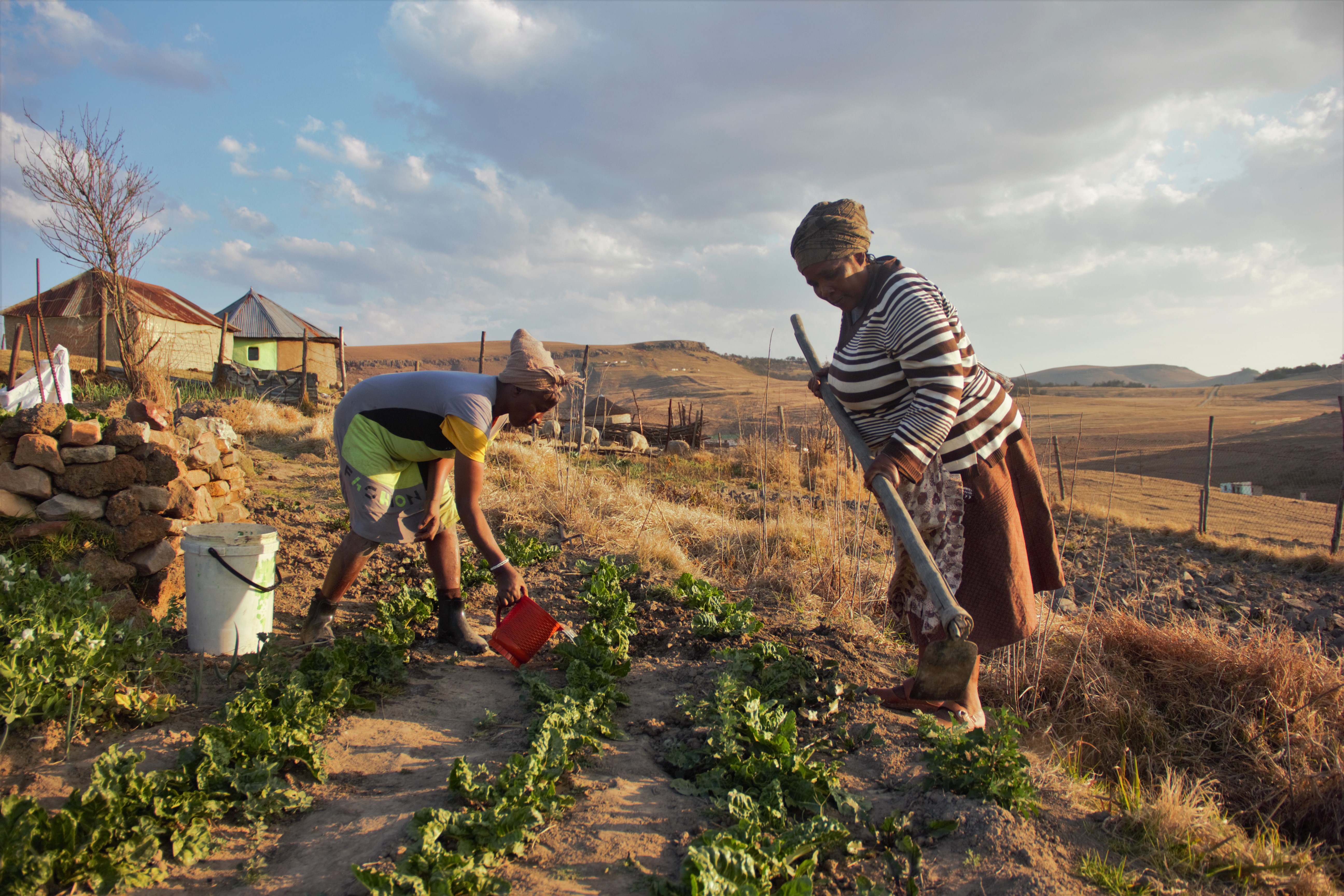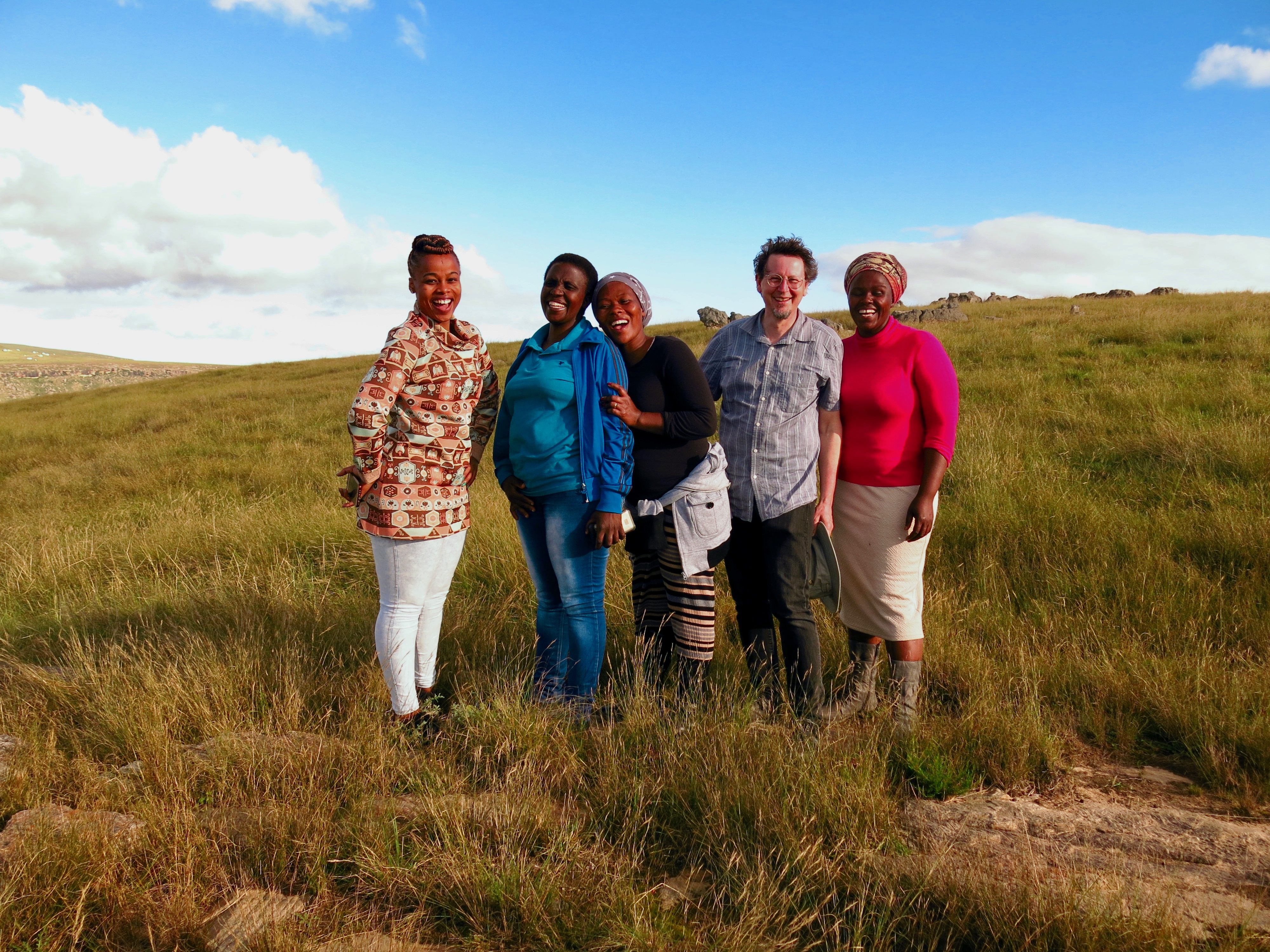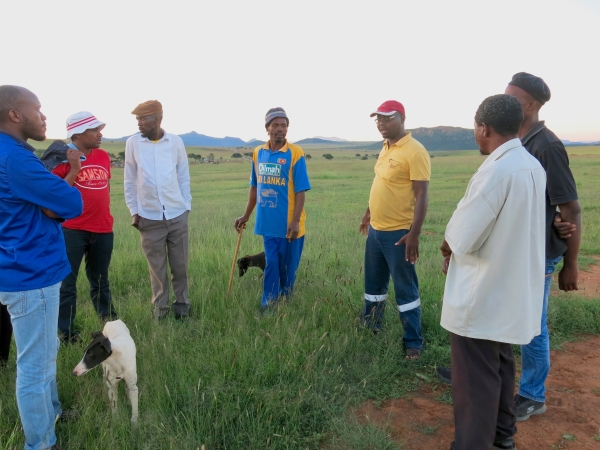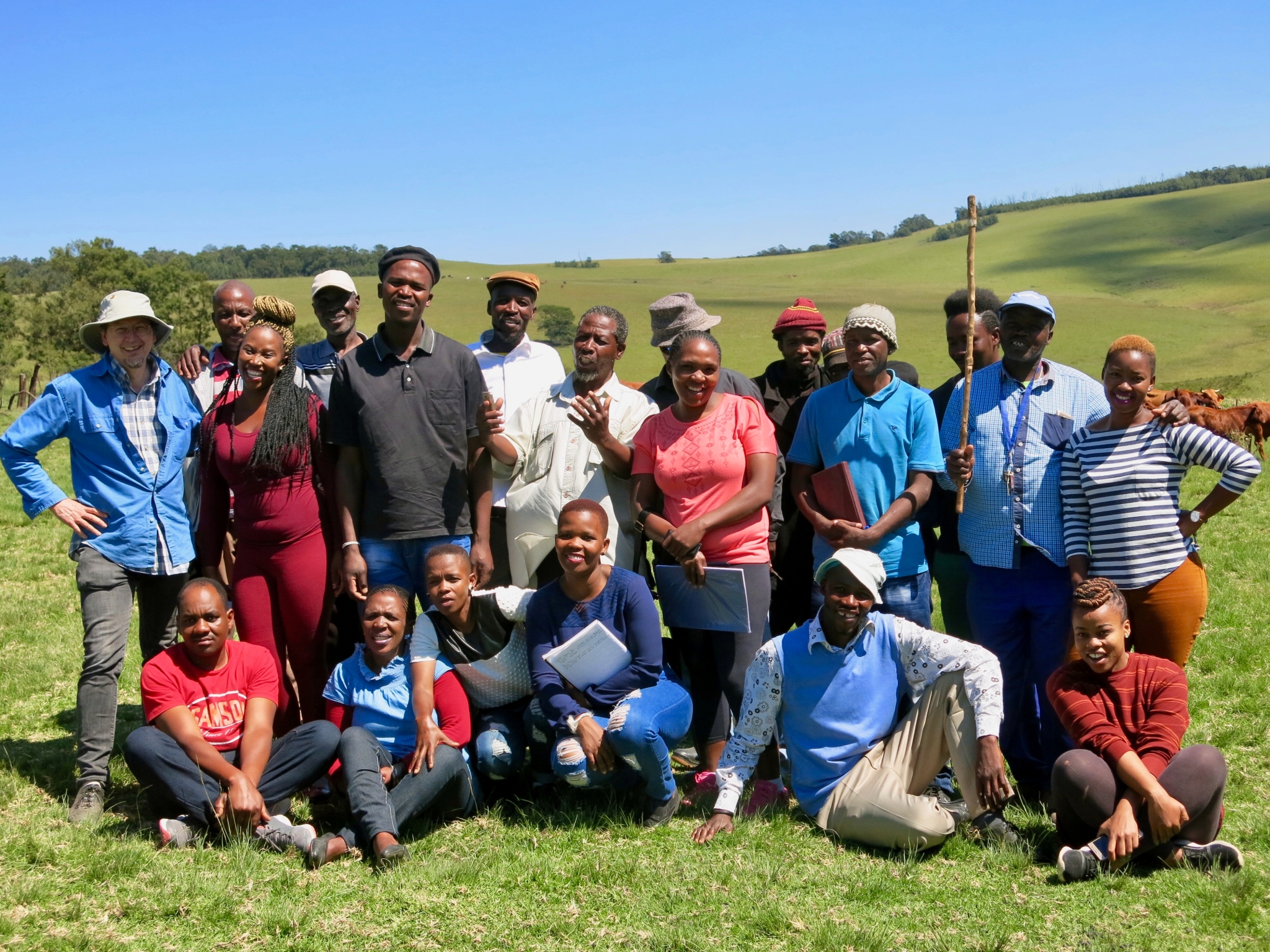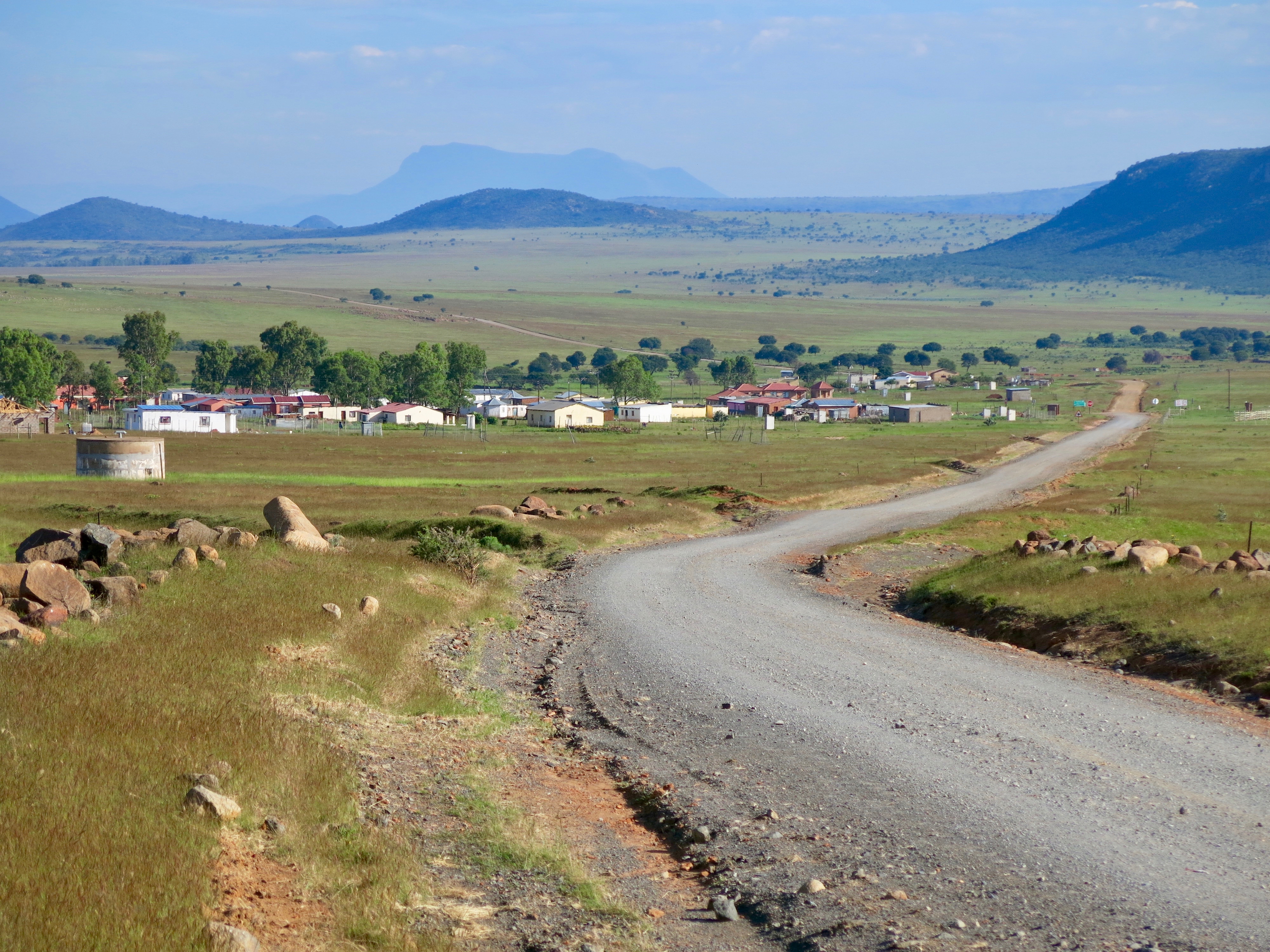Building Soil and Cultivating Change
Becca Mills & Valerie Stull (May 2022)

In the beginning of 2021, just as the coronavirus pandemic was escalating, something overtly positive was brewing in South Africa. Burdened by the collective realization that in light of the pandemic, climate change, and a growing population, food insecurity would likely only worsen for South Africa’s rural populations, co-founders Liza Lightfoot, Mpumelelo Ncwadi, and Asanda Apleni, decided it was time for action. As such, the Kidlinks Small Farm Incubator (KSFI), a registered Public Benefit Organization, was born.
For Liza, Mpumi, and Asanda, current agricultural paradigms and government programs are simply not meeting the needs of the most vulnerable in South Africa. With the goals of increasing food security, reducing youth unemployment, and improving soil health, they purchased a farm near the coast, just south of East London, and began training local youth in regenerative farming practices. Conventional, large-scale agriculture is common in South Africa, viewed as a primary means for farmers to turn a profit. While it may do just that in the short term, it also abuses the environment. KSFI is paving the way for a successful, alternative agricultural system that is more beneficial for both people and the planet.
KSFI wants to think big and start small. Tackling the thorny and self-reinforcing issues of youth unemployment, food insecurity, and soil degradation is tricky, but the first step is as simple as planting a seed. KSFI uses a combined demonstration and teaching approach to ignite change. On the farm, they rarely disturb the soil, are removing invasive species, utilizing natural pest management instead of expensive pesticides, and focusing on holistic methods. To compound their positive impact, KSFI is sharing regenerative farming strategies and benefits in their own community, aiming to show that sustainable food production is a feasible business model that improves access to healthy food for all.
To-date, KSFI has found success selling affordable and high-quality veggie boxes to the local community, utilizing low-cost regenerative practices, writing grants, and teaching. The mere existence of KSFI is evidence that it is not necessary to have a large amount of land to succeed in farming. By sharing this knowledge, the project is helping people realize that they can–even without extensive resources–grow valuable produce to support themselves, whether this be through selling the produce they grow or using it to feed their families (or both!).
PRINCIPLES OF OPERATION
KSFI operates under six regenerative principles and methods to improve soil health because healthy soil means healthy ecosystems and healthy people: 1) diversity, 2) protecting the soil surface, 3) maintaining living roots, 4) minimizing soil disturbance, 5) creating and applying biofertilizers and natural pest control products, and 5) integrating livestock.
In practice, diversity involves growing a wide array of crops and using crop rotation along with other techniques such as companion planting to avoid nutrient-depletion from conventional mono-cropping. Cover cropping, minimizing soil disturbance, and practicing no-till agriculture protects the invaluable soil on the farm. Integrating livestock with crop production used to be commonplace, and bringing this connection back has many benefits. When properly managed, grazing animals can improve soil health by increasing grass cover and supplementing soil with a valuable, natural manure fertilizer. It also promotes biodiversity on the farm, reducing the need for machinery and expensive animal feed, and can serve as an additional strategy to manage weeds.
THE PEOPLE
KSFI wouldn’t be what it is today if it weren’t for the dedicated employees and student interns working together on the farm in multiple task-specific teams. The four-person construction team is renovating KSFI’s buildings and property to optimize efficiency. The smaller grounds team is clearing the property of invasive species, mowing where needed, maintaining tools and equipment, and more.
Co-founder Asanda Apleni serves as the farm manager and student facilitator. She oversees farm infrastructure and general operations, working in the field all day with the students and teaching them tips and tricks for successful growing. Asanda is also involved in planting, harvesting, and assembling the veggie boxes for sale. Asanda believes it is her “duty to share and teach,” and at KSFI, it is her goal to “create an environment that is healthy, where people are always looking forward to coming to work and can be happy.” Asanda’s positive attitude is contagious—as she motivates others to strive to be their best and is a dedicated mentor to the student interns. Thatohatsi Makgloto, KSFI’s new administrator and bookkeeper has been an invaluable addition to the team.
In terms of working with the locals, Vathiswa Mazolwana leads the charge as the Community Engagement Facilitator; two days per week, Vathiswa helps community members with their home gardens. Impressively, she also oversees 35 community gardens, to which KSFI often donates seedlings, fertilizers, fencing, or other needed items. Deliwe Khanyisa holds the title of crop specialist, and as one of two past students who is now in the regenerative farm incubation project, he has ample experience. He even started his own business growing seedlings. Ndikho Kiva oversees livestock management, and along with two student interns, he cares for KSFI’s Nguni cattle herd. Recently, Ndikho started a piggery, and he aspires to add chickens to the farm in the future. Additionally, Deliwe Khanyisa has recently been hired as the nursery manager for KSFI.
On the administrative, strategic planning, and everything else side of KSFI operations sits Chief Executive Officer and co-founder, Liza Lightfoot. Liza helps with all farm operations and draws on her extensive experience in business, landscaping, gardening, and non-profit management to keep KSFI on track.
Lastly, we must not forget the student cohort at KSFI currently part of the two-year Small Farm Internship Program at KSFI. These students, including Gweleta Sanelisiwe, Yonelisa Mvalwana, Siphosethu Nkohla, Funda Takane, and Lewis Makatesi are gaining hands-on experience in regenerative farming and farm business management. Upon program completion, the students have the option to then participate in the Regenerative Farmer Incubation Program, which allows them to manage their own project that contributes to the farm while gaining valuable business experience and readiness to take their concept to the marketplace; this transition period can jumpstart their journey towards farming independently and successfully. Ambitions for after the program are high. According to Sanilisiwe, for example, “After this internship I want to start my own business, which will be in my hometown. It will be in crop production and also poultry farming.” Yonelisa is looking forward to “being able to teach other people from my area and tell them how this could be important for their lives”.
The students speak very highly of their experiences at KSFI and believe that the business model could be applied all over South Africa, improving lives using regenerative farming. Yonelisa exclaimed that “if this could ever be introduced to people all across South Africa, it will be easy for them to plant veggies. Because of unemployment, people do not have money to do farming, buy herbicides, and everything else like that, I see regenerative farming as one of the easiest ways- it doesn’t need much money.” Lewis agrees, stating that “It will really help a lot in terms of food security, unemployment, and being more secure economically. It’s [organic farming] very accessible to people.” Students at KSFI I am not only learning how to farm regeneratively, they are preparing themselves to provide for their community, and many seem as though they intend to carry the message of regenerative agriculture from KSFI with them for the rest of their lives.
IMPACT
KSFI is still in its infancy, given that it started just two years ago, but what they have already accomplished in this short amount of time is impressive and inspiring. Two of their previous student interns have completed the program and are now still involved at the farm participating in their Regenerative Farm Incubation Program. The rest of their student interns currently in the two-year program are gaining the skills and knowledge required to address food insecurity and unemployment in their communities. Many aspire to open their own businesses following the internship, just as Khanyisa has with his seed business and Ndikho is with his plans for starting a piggery. Not only will these students have the valuable skill set that regenerative farming requires, but they will also be equipped with knowledge gained from their business training following their internship, allowing them many choices of what they want to accomplish going forward.
KSFI is empowering their interns and graduates to be positive change makers in South Africa as leaders in their communities and surrounding areas. Vathiswa, for example, is the community engagement facilitator, currently working with families surrounding the farm. She is assisting 35 different families, helping them tend to their own home gardens. She teaches them effective regenerative farming methods, so that they can successfully grow produce without having to purchase expensive chemicals like pesticides and fertilizers. KSFI also provides these families with the tools they need to have a garden, such as seedlings, homemade fertilizers, fencing materials and more. When KSFI first started, they were donating a lot of produce that they grew directly to the surrounding community. While this was valuable in this time of struggle, they thought it would be more impactful in the long run to directly teach people how to affordably grow produce themselves. Growing one’s own produce allows individuals support themselves without having to rely on government handouts.
KSFI truly embodies its own core principle of thinking big and starting small; in endeavoring to address South Africa’s challenges of youth unemployment, food insecurity, and soil degradation in tandem, KSFI is starting at the local, community level. The project is changing the way people conceptualize farming—showing people that farming can be done even with very limited resources and money. KSFI is giving impoverished rural communities hope and demonstrating a new way to economically support themselves while simultaneously protecting the environment. Through their community outreach program, KSFI is directly teaching people how to apply regenerative methods to grow produce. Moreover, the student interns are gaining valuable skills and experience in the process, such that they can spread the message back in their home areas.
Not surprisingly, KSFI wants their impact to be even more widespread, as they seek to and empower people all over South Africa (and beyond) through regenerative farming. In December 2022, KSFI will host a Young Farmers Convening on the farm. This event will bring young farmers from all over South Africa and neighboring countries together in one place, galvanizing a youth farming movement whereby individuals can share and inspire one another, trade best regenerative farming techniques, and network. KSFI recognizes that knowledge sharing is an extremely powerful tool, and that starting small is the only way to make big ideas come to life. KSFI is currently working hard to grow their organization so that they have the power to reach more people and spread their vision, and the work they are doing deserves the attention of a greater audience.
If you’re interested in learning more about the Kidlinks Small Farm Incubator, and would like to follow them on their inspiring journey towards making change, you can visit their website: https://ksfi.co.za/



